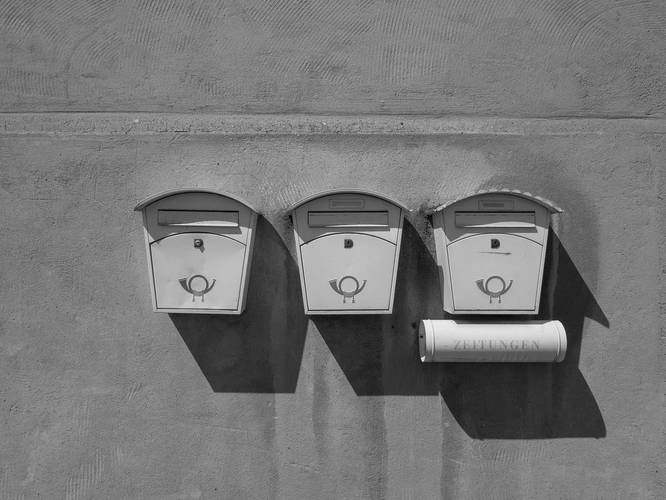The complainant contacted the Ombudsman because she believed that the Ljubljana District Court had wrongly served her court documents in her secure electronic mailbox (SED) in probate proceedings, even though she had not requested this, and as a result, she had missed the deadline for appealing against these court documents. Since the court had not responded to her warnings, she asked the Ombudsman to intervene.
* * *
A complainant contacted the Human Rights Ombudsman of the Republic of Slovenia (Ombudsman) on 14 March 2025 with a complaint in which she stated that she was not informed in a timely manner about the service of a Summons to Submit Statements or Inheritance Agreements of the District Court in Ljubljana, case no. O 553/1949 of 20 December 2024 (hereinafter: summons). She emphasized that the summons was served on her in a secure electronic mailbox, although she did not give permission for such a method of service, and that she therefore missed the deadline for appealing against the additional decision on inheritance. Since the court did not respond to her additional written warning on 5 February 2025, she asked the Ombudsman for assistance.
The Ombudsman conducted an inquiry into the matter at the District Court in Ljubljana. In response to the inquiry, the President of the said court explained that in the case under consideration, an error had occurred when serving the Summons and the decision to suspend the procedure for issuing an additional decision on inheritance. Namely, the complainant notified the court electronically in January 2025 that she had not received the court documents, and upon checking the service of the Summons, it was determined that the court document had been sent to her via a secure electronic mailbox (SEP), which the court explained to her in a letter dated 20 January 2025, but it was overlooked that the complainant had not consented to such a method of service. The complainant again alerted the court to the error in service on 28 January 2025 and 5 February 2025, so the deliberating judge took the case over for review and further action.
After reviewing the file, the deliberating judge determined that the service to the complainant's electronic mailbox was incorrect. When performing the service, it was identified in the electronic register that she had an SEP and that the aforementioned option had been selected by the court staff, but it was overlooked that service to natural persons to the SEP, in accordance with the provision of Article 132 of the Civil Procedure Act (ZPP), is only possible if the party requests it or if the court expressly warns them of this. The court therefore served the decision and court documents on the complainant again on 19 May 2025 and explained in the accompanying letter that there had been an error, which was why the documents were served on her again and that she therefore had a (new) appeal period against the issued decision. Thus, the complainant as a party (heir) was subsequently enabled to participate in the proceedings.
After examining the available information in the case at hand, both that provided by the complainant and that provided by the District Court in Ljubljana on the basis of an inquiry, in connection with the probate proceedings No. O 553/1949 and the issuance of an additional decision on inheritance, it was possible to establish that the complainant's warnings that the service of court documents in connection with the said probate case to her SEP was not correct were clearly justified. On that basis, the District Court in Ljubljana itself recognised this error and corrected it by correctly re-serving and serving the court documents. The error in serving the court documents did not result in any harmful consequences for the complainant, since only with the (correct) service of the court documents could the time limit for her to (have) to perform individual procedural actions (such as, for example, filing an appeal) begin to run.
Since the consequences of the incorrect service of court documents (only on 19 May 2025) were eliminated and no potentially harmful consequences arose that could affect the legal position of the complainant, the basis for further consideration of the matter in question and any further intervention by the Ombudsman in relation to it ceased to exist, and therefore the Ombudsman closed the procedure for considering this matter. 15.3-11/2025

![[Translate to English:] Poštni nabiralniki](/fileadmin/_processed_/4/d/csm_letter-box-460515_1280_3ad15d8247.jpg)